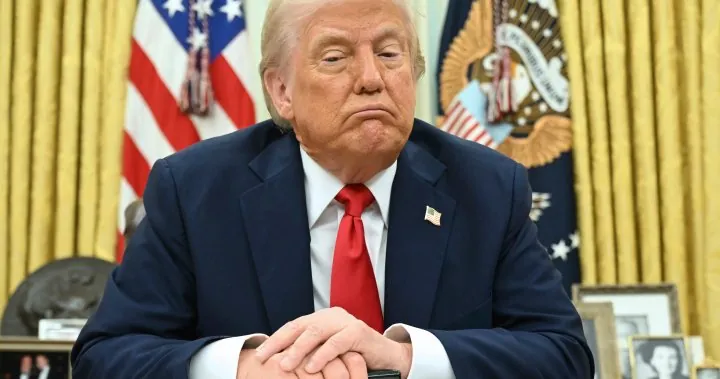
Trump to Announce Controversial 'Reciprocal' Tariffs on Canada’s 'Liberation Day' - Election Campaign Looms
2025-04-02
Author: Emily
Trump's Announcement and Its Context
As tensions between the U.S. and Canada escalate, the implications of President Donald Trump’s ongoing trade war continue to permeate the federal election campaign. On what he has dubbed 'Liberation Day,' Trump is set to announce a new round of tariffs, labeled as 'reciprocal' tariffs, on various countries, potentially including Canada.
Details and Implications of the Tariffs
While specific details regarding the tariffs remain unclear, White House press secretary Karoline Leavitt emphasized that the president aims to address decades of unfair trade practices that she claims have disadvantaged American workers. This announcement is particularly critical as it coincides with the deadline for the temporary exemption of auto parts and other goods traded under North American free trade rules, which face a significant 25% tariff established on March 4.
Political Reactions in Canada
In response to the looming tariffs, Canadian Prime Minister Mark Carney, currently running as the leader of the Liberal Party, has put a temporary hold on his election campaign and plans to meet with officials in Ottawa ahead of the announcement. Previously, Carney spoke directly with Trump and has prepared to retaliate with counter-tariffs if necessary.
The Trade War Escalates
During a campaign stop in Winnipeg, Carney addressed the anticipated U.S. measures, vowing that Canada would respond carefully and strategically to counter what he calls 'unjustified measures' from the U.S. administration. He underscored the importance of ensuring minimal impacts on Canadian businesses while aiming to level the playing field between the two nations.
Current Tariffs Imposed
In an escalating tit-for-tat, the U.S. has already implemented a sweeping 25% tariff on all Canadian goods, in addition to 25% on steel and aluminum imports and a 10% tariff on Canadian energy. In retaliation, Canada has enacted counter-tariffs on nearly $60 billion worth of American products, a move designed to level the economic impact.
Political Landscape as Elections Approach
As the election date of April 28 approaches, Canada’s political landscape is deeply affected by the trade war. Conservative Leader Pierre Poilievre has stressed the necessity of standing firm against Trump’s threats. He has proposed a strategy of 'targeted reciprocal tariffs' that aims to minimize the harm to Canadian consumers while maximizing pressure on American goods. Poilievre also suggested working on renegotiating the Canada-United States-Mexico Agreement post-election to protect Canadian interests more effectively.
Criticism from the Opposition
New Democratic Party (NDP) Leader Jagmeet Singh, meanwhile, has criticized the U.S. president as an 'arsonist,' arguing that Trump’s trade tactics are damaging both the Canadian and American economies. Singh has committed to offering enhanced Employment Insurance for affected workers, advocating for a robust response to the tariffs.
Calls for Caution
Bloc Quebecois Leader Yves-François Blanchet has called for a cautious approach to counter-tariffs, warning that some sectors of the economy are particularly vulnerable and urging careful selection of measures. He also proposed forming alliances with Mexico and European nations to collectively pressure the U.S. for a more favorable trade dynamic.
Conclusion
The unfolding trade war represents not only a significant economic issue but also a pivotal campaign theme for Canadian federal candidates, as they prepare for the upcoming election amid a backdrop of international tension. Only time will reveal the full implications of Trump’s planned tariffs and Canada’s strategic responses in this complex geopolitical chess game.









 Brasil (PT)
Brasil (PT)
 Canada (EN)
Canada (EN)
 Chile (ES)
Chile (ES)
 Česko (CS)
Česko (CS)
 대한민국 (KO)
대한민국 (KO)
 España (ES)
España (ES)
 France (FR)
France (FR)
 Hong Kong (EN)
Hong Kong (EN)
 Italia (IT)
Italia (IT)
 日本 (JA)
日本 (JA)
 Magyarország (HU)
Magyarország (HU)
 Norge (NO)
Norge (NO)
 Polska (PL)
Polska (PL)
 Schweiz (DE)
Schweiz (DE)
 Singapore (EN)
Singapore (EN)
 Sverige (SV)
Sverige (SV)
 Suomi (FI)
Suomi (FI)
 Türkiye (TR)
Türkiye (TR)
 الإمارات العربية المتحدة (AR)
الإمارات العربية المتحدة (AR)